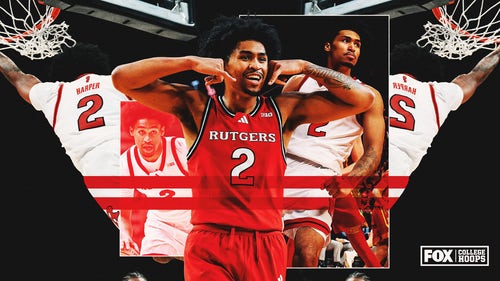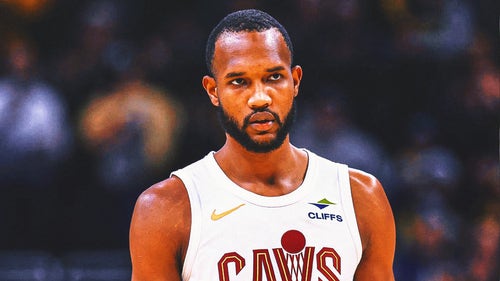
Chemistry, continuity keys to success
The last NBA season – the one that kicked off the basketball renaissance now clearly under way – was almost entirely about the Miami Heat.
It was about arrogance and hype, about who could beat them and who couldn’t. About how the Big Three could handle the drama – or couldn’t. It was about whether LeBron James had signed on for a sure thing or the vicious journey of self-doubt, anger, hatred, potential and disappointment that ultimately defined his, and the league’s, incredible year.
Good stuff.
But this NBA season – which is poised to be better, more dramatic, more interesting and full of even more attention-grabbing storylines – will be about something a lot less glitzy than the sagas of South Beach: Continuity.
In this shortened season that’s placed a premium on being ready to roll from Day 1, the NBA’s new sexy is the innocuous power of having stability, chemistry and a true identity already in place.
More than any other major team sport, the NBA builds it brand and sells its stars and itself through the individual. Be Like Mike. Believe in LeBron. Have fun with Chuck. Rise up like Rose.
But the power to win championships lies not just in those stars but in each one of them having a team and situation that bring out their best. In a season with little practice, less training camp and almost no bonding time a serious advantage has been handed down to teams with no coaching changes, their cores mostly intact and their drama and growing pains already behind them.
It’s why the Heat, Chicago Bulls and Oklahoma City Thunder (if the Kevin Durant/Russell Westbrook schism turns out not to be one) find themselves with the best records in the league and the best shots at a championship.
It’s why teams like Philadelphia (returned their top 11 players from last season), Portland (added two key guards who have yet to make huge contributions but are otherwise intact), Atlanta (kept starting five) and Orlando (no major moves) are playing very good basketball and floating toward the top of the standings.
And it’s why we’ve seen struggles from the Knicks and their new Big Three of Amar’e Stoudemire, Carmelo Anthony and Tyson Chandler; the Clippers with the addition of Chris Paul; the Lakers minus Lamar Odom and with a new head coach in Mike Brown; and the Mavericks with three core guys from last year’s championship team replaced by three new players.
Because chemistry and continuity, more than in perhaps any NBA season ever before, will be the keys to the title.
Those teams that have it already have a great shot at winning a lot of games and positioning themselves for a strong playoff run. Those teams that don’t better find it soon or accept a season of mediocrity and disappointment.
Start with the Heat, who despite Tuesday's overtime loss at Golden State are the best team in the league. Despite injuries to LeBron James and Dwyane Wade, they’re a team with a shared purpose and an inflexible sense of themselves. The newest additions are Shane Battier, a chemistry-glue guy, and rookie point guard Norris Cole, who knows his place and does what is asked of him.
"Last season, we were so busy trying to implement nine new players, establish our defensive philosophy and learn each other’s tendencies offensively," Heat coach Erik Spoelstra told FOXSports.com Tuesday. "This year, we have been able to fast-track so much quicker. If we didn’t experience eight months together of all the ups and downs, and two extra months of playing in the playoffs, it probably would have been much more challenging this season with the condensed schedule."
Instead, that schedule has handed the Heat an advantage almost as unfair as the Big Three themselves: The fact they get to go out and play as a well-oiled machine against a league mostly made up of not-yet-coordinated parts.
So, too, do the Bulls. They simply swapped out Keith Bogans for Rip Hamilton. Unencumbered with trying to blend new personalities into the mix – a problem the Knicks and Clippers are just beginning to tackle – has allowed Chicago to take on even more forcefully the personality of head coach Tom Thibodeau and point guard Derrick Rose.
The Thunder, too, return their core and have benefited as a result. The drama – if it’s genuinely there – between Durant and Westbrook could threaten to undermine some of that advantage, true, but for now Oklahoma City is a team that knows itself and is winning as a result.
Just as the Dallas Mavericks are struggling because they occupy the opposite place on the continuity and chemistry scales. They let Chandler head to the Knicks, saw JJ Barea go the Timberwolves and Caron Butler leave for the Clippers while welcoming new players Lamar Odom, Delonte West and Vince Carter. The result has been a mess – a team that knows little about itself or its parts and, as a result, has no idea just how good or bad it is.
The Knicks, at 5-4, prove the rule, too. Chandler is still adjusting to the Knicks, as they are to him. Stoudemire and Anthony are still trying to figure out how to play together – and with 'Melo at the point-forward, and Amare’s offensive numbers well below recent years, it’s not exactly going well. New York still doesn’t know when Baron Davis will return, how he’ll play, and just what it will mean for team chemistry and on-court performance.
The Lakers, at 7-4, have struggled as well, at least relative to the expectations for a team still boasting Kobe Bryant, Andrew Bynum and Pau Gasol. Phil Jackson and Odom are gone, Mike Brown has arrived, and the result so far has been that Showtime hasn’t seemed this uncertainly lit in a long time.
Can they figure it out? Sure. There’s time to click, and perhaps some of these teams will. Just ask the Heat: It’s harder to do on the fly than you think, and the doubt and pitfalls of trying to do it that way can emerge at any time.
The key question for the Lakers, Knicks, Mavericks and other teams going forward will not be whether they, once at full steam, can beat teams like Miami, Chicago, Oklahoma City and San Antonio.
The key question is: Can they catch up in terms of team chemistry, poise and togetherness in this shortened season quickly enough to even have a fair shot at knowing the answer?
This NBA season could be as compelling and interesting as any in a very long time. But because of the shortened season, the reduced getting-to-know-each-other time and the lack of chances to catch one’s breath it’s the most boring of factors – consistency and chemistry – that will shape its outcome.
You can follow Bill Reiter on Twitter or email him at foxsportsreiter@gmail.com.










